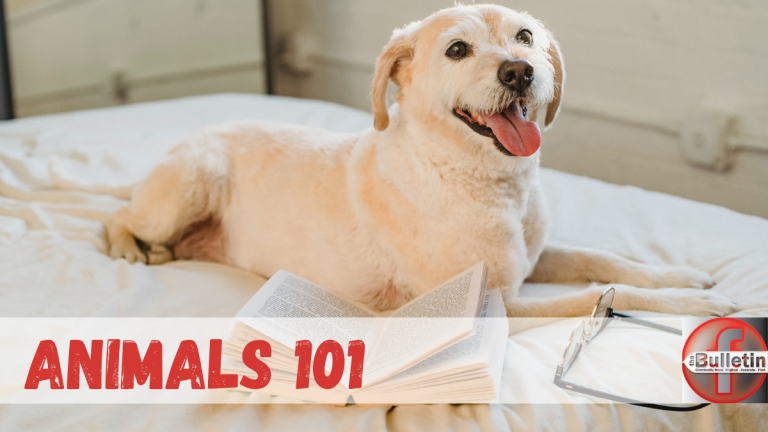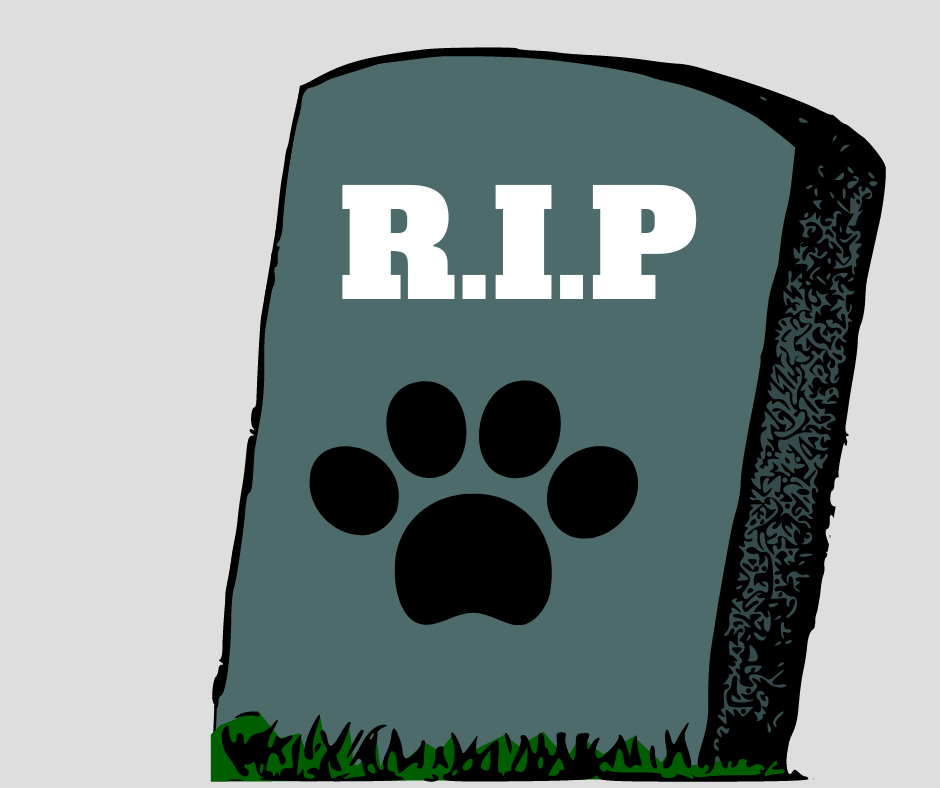
IT IS INEVITABLE THAT SOME PETS MIGHT DIE AT HOME OR THAT YOU FIND A DECEASED ANIMAL SOMEWHERE AND MOST PEOPLE DO NOT KNOW WHAT TO DO IF THIS HAPPENS.
Animal welfare organizations have to deal with animal bodies often and it is not something I wish anyone to experience, but it may happen to you and being prepared can help. A few weeks back someone did a post about their animal that passed away at home over a weekend. They couldn’t get a hold of their vet, which for most is the first step. For this reason, I decided to provide some guidelines in this regard as well as some tips on the grieving process.
One suggestion that was made by a few was to bury the animal in the yard. Burial regulations are determined by local municipal bylaws and it usually falls under waste management bylaws. As far as I am aware, our local municipality does not have any pet burial regulations in place. This, basically means that you can bury your pet in your yard, however, there are exceptions determined by other regulations.
You are not allowed to bury diseased carcasses, which means if your pet had a transmissible disease like Parvo etc., was poisoned or you don’t know why they died, you may not bury them in your yard as it can lead to health and environmental problems. Our municipal waste management department does not pick up dead animals from vets and all vets are referred to Legacy Pet Crematorium.
I followed up on some suggestions:
- Legacy Pet Crematorium can be contacted on 011 875 2099 during the week and weekends. They do collect bodies from people’s homes, but only on Tuesdays in the Secunda area. The costs are around R700 which includes the collection and communal cremation. Separate cremation will be more and dependant on a few factors.
- Another suggestion on the post was to contact AVBOB. I phoned them and they confirmed that they do handle animal bodies too, but they couldn’t give me the exact cost at the time. Contact your nearest AVBOB for more info.
- You can contact your local SPCA as many SPCAs might be able to assist with the body. I can’t confirm whether there is a fee for it, but if there is no fee, please consider a donation.
- Other animal welfare organizations might be able to assist too, although the bodies they deal with, usually go to the vet as well.
- I can confirm that Agricall Pest Control Secunda can’t assist with this.
- Monteviro will remove poisoned bodies and neutralize your yard as I understand. I can’t confirm if they will remove other bodies.
- Enviroserv Secunda does not have an incinerator anymore and therefore can’t assist with the bodies.
- As I understand there is another pet cremation service called Paw Print Pet Funeral and Cremation Service. At the time I could not get information from them.

SO NOW WHAT?
You can’t get a hold of your or other vets in the area or any of the above. This means the body will need to stay with you until the vet practice is open or the body can be collected. This might be upsetting for many, but here are some suggestions on the dos and don’ts in the meantime:
DO
- Make sure the pet is deceased. They might be unconscious or in a deep sleep. Look, listen and feel for a pulse and breathing. You can look and see if the chest rises and falls. Listen closely to whether you can hear breathing or even hear their heart beating. You can put your finger under their nose to feel for breathing. To allocate a pulse you can place the ball of two fingers (not the thumb) on the depression found in your pet’s inner upper thigh over the Femoral artery. You can also place your hand over the left side of their chest where their elbow touches their body. If there is a pulse but no breathing, then rescue breaths are required. If there is no pulse and no breathing, CPR is needed. It is important to know basic first aid for your type of pet (cat, dog, bird, etc.).
- Use gloves if possible and heavy-duty trash bags. If you don’t have heavy-duty bags, use multiple bags for the body.
- Place a towel under the tail, genitals and mouth of your pet. Their body may begin to expel fluids as the muscles relax. This will protect carpets and flooring. Clean the areas around your dog’s mouth, genitals and anus if the fluid has been released. Keep in mind that more body fluids might be released as you move the body.
- It is important to understand that the remains of the pet must be handled as soon as possible and before the onset of rigor mortis. Rigor mortis, the stiffening of the joints, typically begins within 10 minutes to three hours after death and can last as long as 72 hours. The temperature will affect this process.
- Use a blanket, towel, or bed sheet that is large enough to wrap around the body. Place your pet’s body on its side in a curled-up position, as if sleeping. If your pet dies with their legs stretched out, gently fold them in closer to the body if they haven’t already stiffened. The sleeping position can also offer a sense of peace and make it easier to move the body later. Tightly wrap the body and move the body into the trash bags. Securely close the bag with knots.
- The body needs to be kept cool. An animal’s body begins to decompose immediately after death and will soon begin to give off a foul odour and attract insects. The hotter the temperature, the faster the rate of decomposition. If you can’t get the body to your vet or a local pet cremation service or use a freezer/refrigerator, we suggest to keep the body in a cool utility room, basement, or garage floor and making use of additional trash bags is recommended. This should be for no longer than 4-6 hours, as the odour will become severe and spread through the house.
- I do support other pets being allowed to smell the body, so they can better understand what happened and it can help them with the grieving process too. Yes, they grieve too. If you don’t know why the animal died or they have been poisoned or had a transmissible disease then this is not advisable.
- If the body is going elsewhere, be sure to put a labell on the bag with your name, number and your pet’s name.
DON’T
- Don’t panic. I know it is easier said than done, but when you panic, it can cause extra distress for other family member or pets which adds to the trauma and you may not be able to think clearly.
- Don’t leave your pet in a warm place. A cool, dry place such as a garage will have to do if you can’t keep it in a freezer or refrigerator.
- Don’t try to handle it alone as the death of a pet can be a traumatic experience. Call a friend or family member if you are alone when it happens.
- Don’t move larger pets without assistance. As the pet’s body stiffens it may be more difficult to move alone.
- Don’t bury the animal in your yard if the local bylaws do not allow for it or if you don’t know why your pet died, if they had a transmissible disease or were poisoned. This can be dangerous for other animals and your family as well as the environment.

Also read what to do if you found wild birds.
REMEMBER
- Contact vets in advance about euthanasia prices. Some are double the price of others. Also ask the vet what they do with the body, especially if you pay for cremation, ask through which company.
- If you do not have the funds to euthanize a pet who is suffering, please surrender them to your local SPCA, which will end the suffering humanely. They may not refuse any animal.
- If you found a body in the road, please remove it from the road. Take a picture if you can and send it to your local lost and found pet groups so they can give closure to someone whose pet is missing.
- Please don’t replace the animal soon after with another pet as you will introduce the new family member into a low/sad energy home which is unfair to them. As mentioned, your pets grieve too, so keep an eye on them.
The hardest part of being a pet guardian is saying goodbye. Remember your grief is valid & personal. Reach out if you need to! There are professional counsellors for those who have lost pets. You will need time to grieve properly. Also read strategies to cope with the loss as well as help your other pets cope with the loss.
In the next few weeks, we will look back on the ANIMALS 101 series articles published which you might have missed.
WHEN YOU KNOW BETTER, DO BETTER!